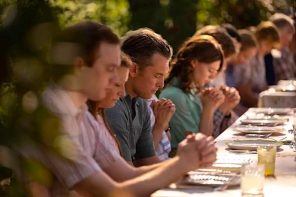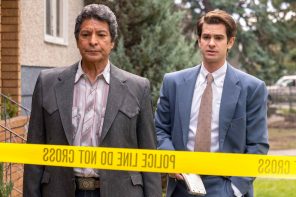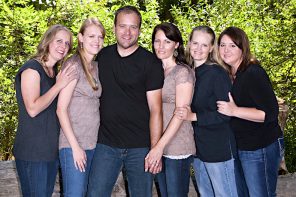Last week, the Utah Supreme Court overturned the conviction of FLDS leader Warren Jeffs for being an accomplice to rape in the case of Elissa Wall, who, under Jeffs’ direction, was married in 2001 at the age of 14 to her cousin Allen Steed.
The ruling was overturned on the issue of whether Judge James Shumate had properly instructed the jury in considering whether Jeffs, as a religious leader, had intended rape to occur when he performed the ceremony between Wall and Steed. The defense argued that Jeffs could not be held accountable for rape simply for performing the marriage; according to the prosecution, Jeffs used his absolute authority over FLDS life to coerce Wall into a marital and sexual relationship with Steed against her will.
Wall has written about her life and experience in Stolen Innocence, one of several memoirs of life under Jeffs, whose authoritarian leadership style transformed the FLDS community. After the verdict, Wall said she was in “shock and disbelief” and vowed to continue to fight.
In his rise to power after the 2002 death of his father Rulon Jeffs, Warren Jeffs consolidated his personal and political power by exiling from the community and breaking up the families of observant FLDS men and women he considered rivals or critics of his domain. Jeffs’s claim to be a prophet has also been associated with increasingly rigid rules for dress and conduct in the FLDS community and with the withdrawal of FLDS men and women from interaction with other Mormon fundamentalists and polygamists in the larger Utah-Arizona community of Short Creek, as well as with the movement of a select number of FLDS members to the faith’s remote compound in Eldorado, Texas.
Jeffs will stand a new trial in Utah scheduled to begin on August 23, and he faces extradition to Texas. Utah Attorney General Mark Shurtleff is also being pressured to review state rape statutes to better deal with the situation of arranged underage marriages in polygamous communities.
Two days after the news broke, Anderson Cooper hosted a show on the case. What stunned me in reading the show’s transcripts was guest Jon Krakauer’s claim that the Utah Supreme Court’s decision reflected pressure from mainstream LDS (not FLDS) church higher-ups who might be concerned that according to the logic of the original Jeffs conviction they too might be held accountable for sexual abuse within the LDS Church:
KRAKAUER: “I, for one, do not doubt that there may have been a political basis for this decision, given the five members of the—the five justices on the Supreme Court’s close ties to the LDS church and the LDS Church’s own concerns with sexual abuse and what this says about, you know, how you can tie someone who compelled the abuse but didn’t actually commit the rape, how he can be held accountable. That’s—that’s a scary thing for some members high up in the LDS church.”
Patterns of sexual abuse and failure to report abuse by the LDS Church’s lay ecclesiastical leaders (including some multi-million dollar penalties levied against the Church in civil suits) have been well-documented by Mormon feminists Lavina Fielding Anderson, Janice Allred, and the Mormon Alliance in their Case Reports of 1995 and 1996. The Church has subsequently adopted a clear statement on the handling of abuse and instituted a hotline for ecclesiastical leaders to utilize for assistance in properly handling and reporting abuse cases.
But can one fairly compare the totalitarian environment of FLDS life under Warren Jeffs in the isolated community of Short Creek with mainstream LDS communities? No doubt, mainstream LDS communities have their internal problems and cultural specificities that may contribute to abuse and improper handling of abuse. But Krakauer’s made-for-prime-time take on the FLDS and the LDS reflects the same flawed connect-the-dots illogic that characterized his book Under the Banner of Heaven, which attempted to offer an examination of faith and Mormon culture but instead proved to be a ham-fisted and sensationalistic take on the life of Joseph Smith interwoven with an In Cold Blood style chronicle of a pack of marginally Mormon polygamists on a murderous rampage across the Western states.
Jon Krakauer is not an authority on Mormonism. It’s a pity that Mormon communities are so reticent to speak for ourselves in terms robust enough for the outside world to understand that folks like Krakauer get the job.
I have a call in to a friend in Short Creek (the local name for the polygamous communities of Centennial Park, AZ, Colorado City, AZ, and Hildale, UT) to see what folks on the ground are saying. In the meantime, I’ll be reading whatever Brooke Adams, the Salt Lake Tribune’s excellent beat reporter on polygamy, has to say. And I’ll be looking forward to hearing all parties have their say as the judicial process continues to move forward.




